About
Humanities Data Visualization, a workshop to be held at Georgia Tech from March 2nd to March 4th, 2016, will bring together leading humanities scholars with visualization designers and researchers to explore a range of meanings of humanities “data,” and to prototype new methods for their visual display. Our goal is to encourage these otherwise unlikely collaborators to imagine new forms and platforms capable of portraying the humanistic dimensions of culturally significant data-- an increasingly important challenge in the fields of digital humanities and information visualization alike.
We have organized the workshop so as to facilitate a process of research through design. Participants will work in interdisciplinary teams to prototype a visualization of one scholar’s humanities data. For a more detailed workshop schedule, click here.
Humanities Data Visualization has been generously funded by Georgia Tech's GVU Center, the Institute for People and Technology, the School of Literature, Media, and Communication, and the Ivan Allen College of Liberal Arts, and the Intel Center for Social Computing (ISTC-Social).
The design for this website is inspired by Speaking in Code. The background image depicts the city of Atlanta circa 1919.
Participants
Our participants come from diverse backgrounds in academia, industry, and the arts; and bring together a variety of disciplinary backgrounds and domain expertise. Our humanities scholars research topics as far-ranging as modernist poetry, the Black Press, and the environmental impact of fracking. Our visualization designers and researchers have experience producing a wide variety of outcomes including academic papers, software, exhibitions, permanent installations, and performance art.
Click the images below for bios and more information.
-
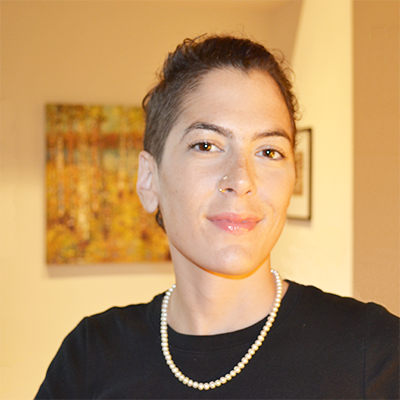
Jessica Anderson
Coming soon.
-

Rahul Basole
Rahul C. Basole is an Associate Professor in the School of Interactive Computing, the Associate Director of the Tennenbaum Institute/IPaT, and a faculty member in the GVU Center at Georgia Tech. He is also a Visiting Scholar in the mediaX/H*STAR Institute at Stanford University. His research and teaching focuses on computational enterprise science, information visualization, and strategic decision support. Current research includes the design, development, and application of novel visual analytic tools for understanding complex business ecosystems and enterprises in a diverse set of industries including technology, healthcare, energy, and global manufacturing. His work has received numerous best paper awards and he has extensively published in leading computer science, informatics, management, and engineering journals. Prof. Basole is an editorial board member of the Journal of Enterprise Transformation and INFORMS Service Science.
In previous roles, he was the CEO and Founder of a Silicon Valley-based wireless research and consulting firm, the Director of Research and Development at a leading mobile software firm, and a Senior Analyst in a strategy consulting firm. Prof. Basole is a member of the Association for Computing Machinery (ACM), the Institute for Operations Research and Management Sciences (INFORMS), the Decision Sciences Institute (DSI), and the Association for Information Systems (AIS). He currently serves as a director or advisor for several technology and software firms.
Dr. Basole received a Ph.D. in industrial and systems engineering from the Georgia Institute of Technology. -
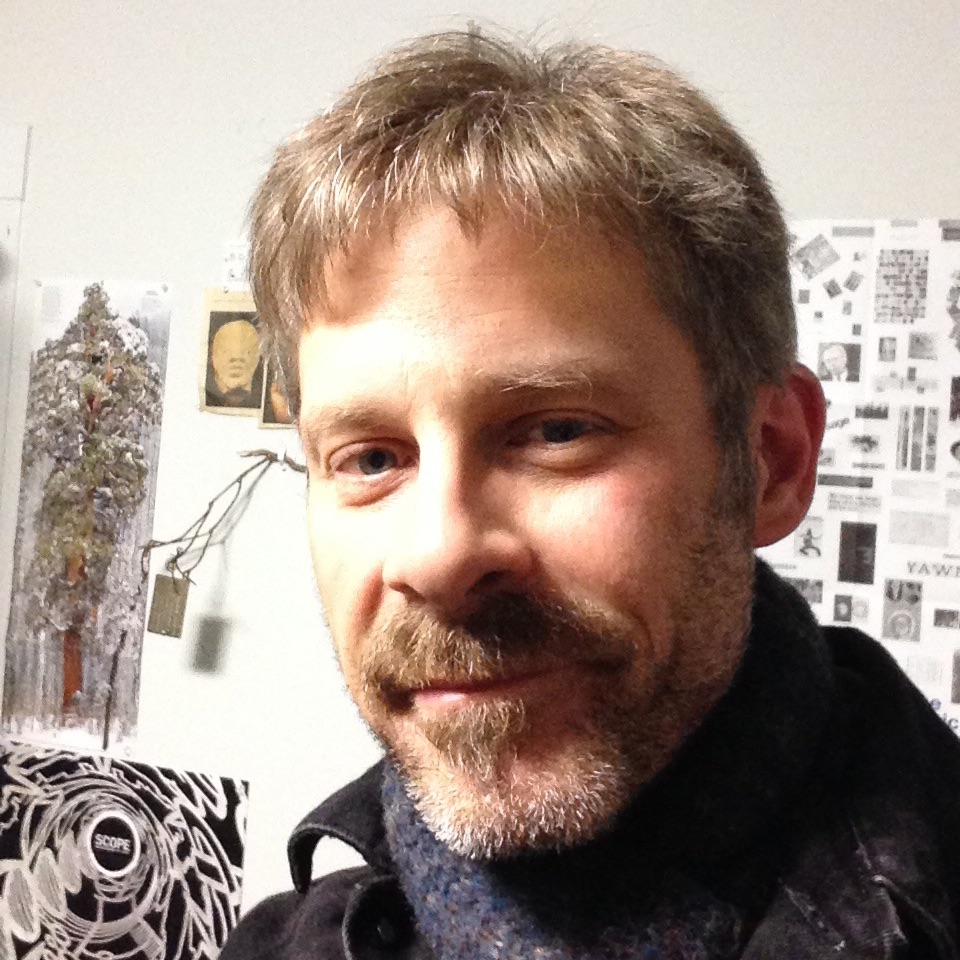
Matthew Battles
Matthew Battles is associate director of metaLAB at Harvard and a fellow at the Berkman Center for Internet and Society. He has written about the cultural dimensions of science and technology for such venues as The American Scholar, The Atlantic,The Boston Globe, Harper’s Magazine, and The New York Times. Matthew has published extensively on the history and changing roles of libraries in culture; his book Library: an Unquiet History (Norton) is available in eight languages worldwide and has been in print since 2003. In addition, he wrote the official history of Harvard’s Widener library, and is coauthor, with Jeffrey Schnapp, of The Library Beyond the Book (Harvard 2014). His most recent book is Palimpsest: a History of the Written Word (Norton 2015). With metaLAB, Matthew develops creative research encounters with cultures of data and knowledge production; landscapes and built environments; and the dark abundance of libraries, museums, and archives. The resulting projects take shape variously as visual artworks, design provocations, and multimedia installations.
-

Jim Casey
Jim Casey is a PhD candidate in English at the University of Delaware with interests in antebellum American print culture and the digital humanities. His dissertation charts the development of editorship and editorial practice in antebellum newspapers. Along with research fellowships through UD and the American Antiquarian Society, his work has appeared in Common-Place. He is co-founder and co-coordinator of the Colored Conventions Project coloredconventions.org. Personal site jim-casey.com.
-

Polo Chau
Duen Horng (Polo) Chau is an Assistant Professor at Georgia Tech’s School of Computational Science and Engineering, and an Associate Director of the MS Analytics program. Polo holds a PhD in Machine Learning and a Masters in human-computer interaction (HCI). His PhD thesis won Carnegie Mellon’s Computer Science Dissertation Award, Honorable Mention. Polo received faculty awards from Google, Yahoo, and LexisNexis. He also received the Raytheon Faculty Fellowship, Edenfield Faculty Fellowship, Outstanding Junior Faculty Award. He is the only two-time Symantec fellow and an award-winning designer.
Polo’s research group created novel detection technologies for malware (patented with Symantec, protects 120M+ people), auction fraud (WSJ, CNN, MSN), comment spam (patented & deployed with Yahoo), fake reviews (SDM’14 Best Student Paper), insider trading, and unauthorized mobile device access (Wired, Engadget). -
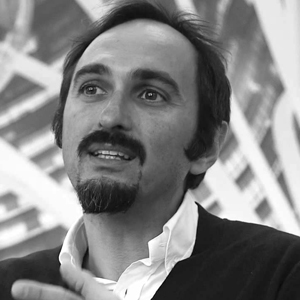
Paolo Ciuccarelli
Paolo is member of the Design PhD board at Politecnico and co-editor of the journal “Big Data and Society” (SAGE publications). Founder and scientific director of DensityDesign Research Lab, he is member of the Steering Committee of the Reassembling the Republic of Letters COST Action and leader of the Working Group on Communication and Data Visualization. In 2008 the DensityDesign Research Lab became Project Affiliate in the Mapping the Republic of Letters initiative, launched and coordinated by Stanford Humanities Centre, CA, USA. Together with the lab he has been leading research projects funded by EU and other public and private organizations, as WHO, Orange and Telecom.
The activity of the research lab focuses on the visual representation of complex phenomena and the development of interfaces and tools for Data and Information Visualization as RAW, Contropedia and DaCena.
Concerning the questions I answered to two of them, as I would not qualify my self neither as a "professional" visualization designer (even thou I do design to do research) nor a humanist or CS: we do research in design (and by design) to help creating meaningful experiences with data (that's also for role I've been assigned in the "evolving document"). -

Roderic N. Crooks
I am a critical scholar who engages with cultural aspects of new media and information technology, primarily through ethnographic research in minority communities. My work investigates the cultural prominence of computers and computer-like devices, with a particular interest in the way that smartphones, apps, and mobile computing architecture transform more and more realms of life into sites of computational activity. I am interested in the subjectivity modern media and information technologies give rise to and reinforce, what kinds of programs of action and values are encoded in technological artifacts. I do this work at the intersection of science and technology studies and critical race theory, with an interest in the experiences and voices of minority communities. My dissertation project looks at a one-to-one tablet computer program deployed in South Los Angeles to increase access to technology in poorer communities; I explore the social justice rationale of such uses of computers and contrast these laudable goals with the demands of computer systems in the form of infrastructure, labor, and surveillance.
-

Catherine D'Ignazio
Catherine D'Ignazio is an Assistant Professor of Civic Media and Data Visualization at Emerson College, a Fellow at the Engagement Lab and a Research Affiliate at the MIT Center for Civic Media. Her work focuses on data literacy, media innovation and civic art. It takes the form of public art, design, code, classes, workshops and writing. D'Ignazio has co-developed a suite of tools for data literacy (DataBasic.io), developed custom software to geolocate news articles and designed an application, "Terra Incognita", to promote global news discovery. She is currently working with the Public Laboratory for Open Technology and Science to explore the possibilities for journalistic storytelling with DIY environmental sensors. Her art and design projects have won awards from the Tanne Foundation, Turbulence.org, the LEF Foundation, and Dream It, Code It, Win It. Her work has been exhibited at the Eyebeam Center for Art & Technology, Museo d’Antiochia of Medellin, and the Venice Biennial.
-

Carl DiSalvo
Dr. Carl F. DiSalvo is an Associate Professor in the School of Literature, Media, and Communication. He earned a PhD in Design from Carnegie Mellon University in 2006 and was a visiting fellow in The Studio for Creative Inquiry and The Center for the Arts in Society from 2006-2007 (also at CMU). His work explores the intersection of design, art, technology, and politics. His recent design projects have focused on the development of participatory public programs and technology platforms that foster critical engagements with robotics, environmental sensing, and small-scale agriculture. Dr. DiSalvo is associate director and LMC faculty coordinator for the Human-Computer Interaction MS Program.
-
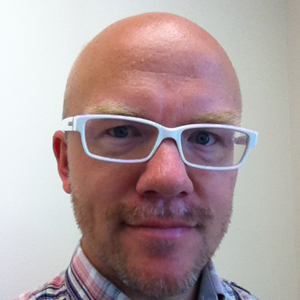
Niklas Elmqvist
Niklas Elmqvist is an associate professor in the iSchool (College of Information Studies) at University of Maryland, College Park. He received his Ph.D. in computer science in 2006 from Chalmers University in Gothenburg, Sweden, and has conducted research at Georgia Institute of Technology in Atlanta, GA (Spring 2006), INRIA in Paris, France (Spring 2007), and Microsoft Research in Paris, France (2007-2008). Prior to joining University of Maryland, he was an assistant professor of electrical and computer engineering at Purdue University in West Lafayette, IN. His research area is information visualization, human-computer interaction, and visual analytics. He is the recipient of an NSF CAREER award as well as best paper awards from the IEEE Information Visualization conference, the International Journal of Virtual Reality, and the ASME IDETC/CIE conference. He is papers co-chair for IEEE InfoVis 2016, associate editor of IEEE Transactions on Visualization & Computer Graphics and the Information Visualization journal, as well as co-editor of the Morgan & Claypool Synthesis Lectures on Visualization. His research has been funded by both federal agencies such as NSF and DHS as well as by companies such as Google, NVIDIA, and Microsoft. He is also the recipient of the Purdue Student Government Graduate Mentoring Award (2014), the Ruth and Joel Spira Outstanding Teacher Award (2012), and the Purdue ECE Chicago Alumni New Faculty award (2010).
-

Alex Endert
Alex Endert is an Assistant Professor in the School of Interactive Computing at Georgia Tech. He directs the Visual Analytics Lab, where him and his students explore novel user interaction techniques for visual analytics. His lab often applied this fundamental research to applied domains including text analysis, intelligence analysis, cyber security, decision-making, and others. He is an active contributor to venues for human-computer interaction and information visualization (ACM CHI, IEEE VIS, IEEE TVCG, IEEE CG&A). He received his Ph.D. in Computer Science at Virginia Tech in 2012, advised by Dr. Chris North. In 2013, his work on Semantic Interaction was awarded the IEEE VGTC VPG Pioneers Group Doctoral Dissertation Award, and the Virginia Tech Computer Science Best Dissertation Award.
-

Nihad M. Farooq
Nihad M. Farooq is Associate Professor of American Studies and Director of Undergraduate Studies in the School of Literature, Media, and Communication at the Georgia Institute of Technology. She holds a Ph.D. in English from Duke University, a joint M.A. in English & American Literature and Women’s Studies from Brandeis University, and an A.B. in English from Dartmouth College. She is a past recipient of the William S. Vaughn and Andrew Mellon Faculty Research Fellowship at the Warren Center for Humanities at Vanderbilt University. Farooq investigates the transformative power of encounter between scientists and indigenous and diasporic populations in the Americas in the long nineteenth century. Her research moves between literary studies, American and Atlantic Studies, critical race theory, and cultural studies of science and ethnography. Her first book, Undisciplined: Science, Ethnography, and Personhood in the Americas, 1830-1940 is forthcoming from New York University Press. A second book, Slavery and Social Networks in the New World, is currently in progress.
-
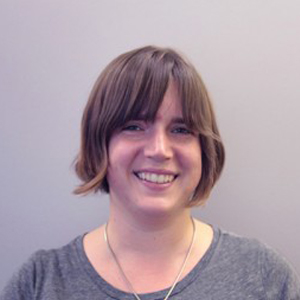
Jenna Fizel
Jenna Fizel earned a BSAD from MIT in 2007. She is interested in how the digital and physical mix – both through creating situated virtual experiences and the use of digital fabrication. She is also the former co-founder of a fashion and technology startup. In her spare time she uses her knowledge of code and machines to make robots build her furniture.
-

Jim Foley
Jim Foley is a Professor in the School of Interactive Computing in the College of Computing at Georgia Tech, and holds the Fleming Chair in Telecommunications. He joined Georgia Tech in 1991 as the founding director of the GVU Center. On leave from Georgia Tech from 1996-99, he was Director of MERL (Mitsubishi Electric Research Laborator) and then CEO and Chairman of Mitsubishi Electric Information Technology Center America. He earlier served on the faculties of the University of North Carolina and The George Washington University.
From 2001 to 2005 he was chairman of the Computing Research Association - an organization of over 250 computer science and computer engineering university departments, professional societies and research labs.
His research interests are computer graphics, human-computer interaction, information visualization, and educational technology.
He is co-author, with Andy van Dam, Steve Feiner and John Hughes, of several computer graphics texts. He received the ACM-SIGGRAPH award for Lifetime Contributions to Computer Graphics and ACM-SIGCHI’s award for Lifetime Contributions to Human-Computer Interaction. He is a member of the National Academy of Engineering, and a Fellow of AAAS, ACM, and IEEE. -

Caroline Foster
Coming soon.
-
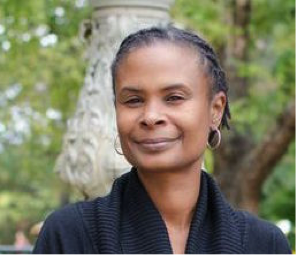
Kim Gallon
Dr. Kim Gallon is an assistant professor of history at Purdue University. She is also the founder and director of the Black Press Research Collective and an ongoing visiting scholar at the Center for Africana Studies at Johns Hopkins University. She is completing a manuscript titled, “We Are Becoming a Tabloid Race: The Politics of Gender and Sexuality in the Black Press, 1925-1945” and is the editor of a forthcoming digital and print series on the black press published by Johns Hopkins University press. She has been awarded several major digital humanities grants for her work on visualizing the history of the black press.
-

Ridhima Gupta
My journey in Design began 8 years ago, when I decided to study Architecture. I worked with several architectural companies and gained a lot of experience in architecture, interior design, graphic design and project management. But, it was one of those days, when life throws the question to you, “What’s next? Where are you heading?", I started speaking to a senior from college who suggested me to look into the field of User Experience. Since that day, there has been no looking back for me. Currently, I am pursuing MS-HCI at Georgia Tech. This program has gave me the platform to work with pioneers in the field of design and research and make a lot of friends on the way(who are also passionate about design!)
I think that design is a “Creative Science”, where I can use both my creative talents and analytical abilities to solve problems. When I saw my brother hear sound for a first time with the help of a Coclear implant, I decided that I want to work in technology and impact people’s lives that way. And working in design and understanding people’s problems and solving for that, is immensely satislying! -

Song Hia
Song Hia is exploring new uses of technology as a master’s candidate at NYU’s Interactive Telecommunications Program (ITP).
Coming from a background as a producer and strategist, Song has worked across product and business at enterprise marketing technology company Percolate, helped organize geek speaker series Ignite NYC, covered technology news as a radio producer for NPR affiliate WYPR, and led design and technology teams to craft interactive branded experiences and products. He is a graduate of Johns Hopkins University. -

Russell Huffman
I am a second year graduate student at the Georgia Institute of Technology studying Digital Media and am graduating this May. The projects I pursue revolve around education, storytelling, and the humanities. Past projects I have been involved with include an oral history visualization project around the disenfranchised neighborhoods in Atlanta, an interactive map of pharmaceutical production in South Africa, and a simulation to educate about ecological succession in urban spaces. I make simulations, data visualizations, and other front end experience that educate, entertain, and inform users. I enjoy working with new and emerging technologies that allow for unique user interactions such as computer vision and bluetooth beacons. I also come from an art background, so I love coming up with creative and beautiful solutions that make complex problems accessible.
-
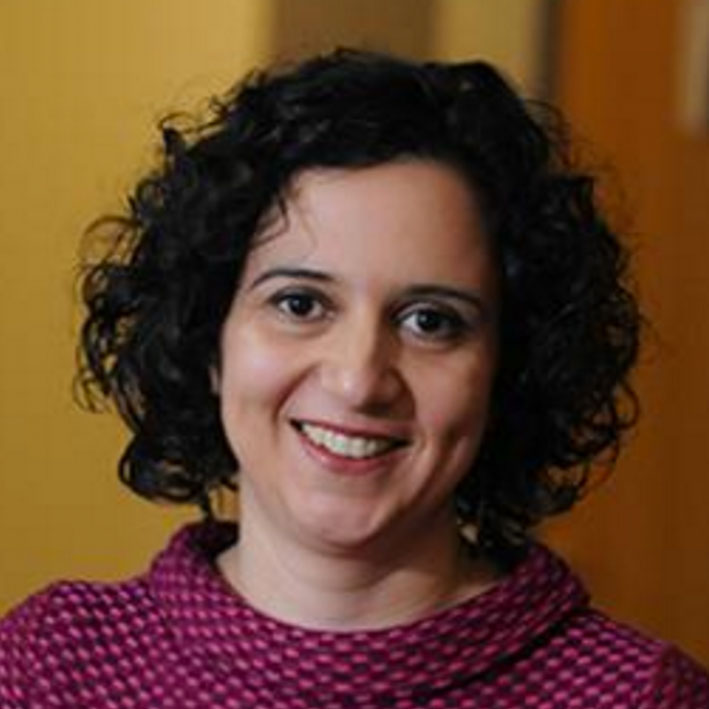
Nassim JafariNaimi
Nassim Jafarinaimi is an Assistant Professor in the School of Literature, Media, and Communication. She received her Ph.D. in Design from Carnegie Mellon University and holds an MS in Information Design and Technology from the Georgia Institute of Technology. Her research interest is in the ethical and political implications of emerging technologies. More specifically, she examines the experiential and participatory dimensions of social media and their relationship to establishing and supporting democratic forms of social interaction. Her research spans both theoretical inquiry and experimental design, situated at the intersection of Design, the Humanities, and Human Computer Interaction.
-

David J. Kim
David J. Kim is a Mellon Postdoctoral Fellow at the Center for Digital Liberal Arts, Occidental College. His research examines the cultural politics of representation in the archives of minoritarian histories in the US. Informed by his experience of developing digital archives for community-based cultural organizations in New York and Los Angeles, his digital projects explore emerging tools, platforms and methods to imagine new modes of articulating cultural difference. He holds PhD in Information Studies from UCLA, and MA in English from NYU.
-

Lauren Klein
Lauren Klein is an assistant professor in the School of Literature, Media, and Communication, where she also directs the Digital Humanities Lab. She received her A.B. from Harvard University and her Ph.D. from the Graduate Center of the City University of New York (CUNY). Her research interests include early American literature and culture, food studies, media studies, and the digital humanities.
With Matthew K. Gold, she edits Debates in the Digital Humanities, a hybrid print/digital publication stream from the University of Minnesota Press. Her writing has also appeared in American Literature, Early American Literature, American Quarterly, and Digital Scholarship in the Humanities (formerly Literary and Linguistic Computing), among other venues. She serves as co-PI on the NEH Office of Digital Humanities-funded TOME project, a tool to support the interactive exploration of text-based archives. In addition, she is a member of the executive committee of the MLA’s Digital Humanities Forum and co-head of the Americanist Board of NINES: Nineteenth-Century Scholarship Online. -

Chris Le Dantec
Christopher Le Dantec is an Assistant Professor in the Digital Media Program in the School of Literature, Media, and Communication at the Georgia Institute of Technology. His research is focused on integrating theoretical, empirical, and design-based investigations of computing systems and artefacts in support of community and civic engagemen. He directs the Participatory Publics Lab—PPL—where students and community members develop participatory design approaches to co-creating mobile and digital media. From richly interactive and data-driven websites, to interactive installations exploring oral history and community narratives, to mobile apps that contribute to smarter cities, PPL researchers are pursuing new forms of civic participation.
-
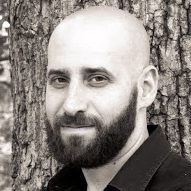
Yanni Loukissas
Yanni Loukissas is an Assistant Professor of Digital Media in theSchool of Literature, Media, and Communication at Georgia Tech. His research draws together design, media, and science and technology studies. Recent projects include: an institutional portrait of the Arnold Arboretum using metadata on 70,000 trees, vines and shrubs and a visualization of human-machine interactions during the first lunar landing. He is a contributor to Simulation and its Discontents (MIT Press, 2009) and the author of Co-Designers: Cultures of Computer Simulation in Architecture (Routledge, 2012). Before coming to Georgia Tech, he was a lecturer at the Harvard Graduate School of Design, where he co-coordinated the Program in Art, Design and the Public Domain. He was also a principal at metaLAB, a research project of the Harvard Berkman Center for Internet and Society that explores digital futures for the arts and humanities. Additionally, he has taught at Cornell, MIT, and the School of the Museum of Fine Arts. Originally trained as an architect at Cornell University, he subsequently received a Master of Science and a PhD in Design and Computation at MIT. He also completed postdoctoral work at the MIT Program in Science, Technology and Society.
-

Bill McKenna
Coming soon.
-
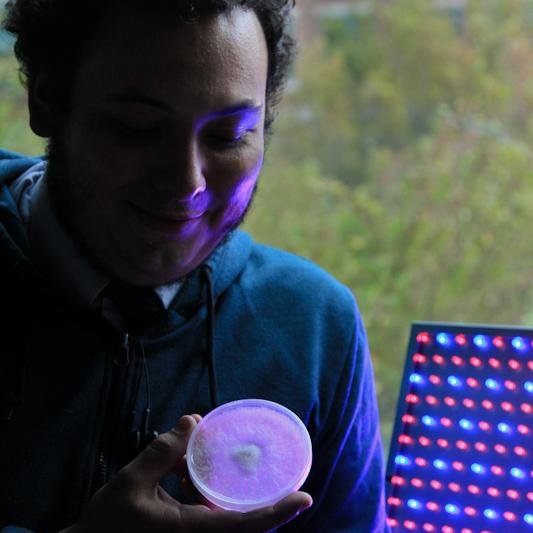
Blacki Migliozzi
Blacki Migliozzi is a data visualization developer and graphic journalist at Bloomberg News. In the newsroom he collaborates with reporters in designing & building interactive stories. His work has covered a number of topics such as Climate Change, Science, and Energy. Working in data journalism has led him to apply technologies such as remote-sensing to satellite imagery as well as machine learning on text.
At Georgia Tech he studied studied both human-computer interaction and discrete math. During this time he worked on designing and prototyping small-scale agricultural technologies. This experience has led him to this day to continue to research the intersection of biotech and agrarian practices. -
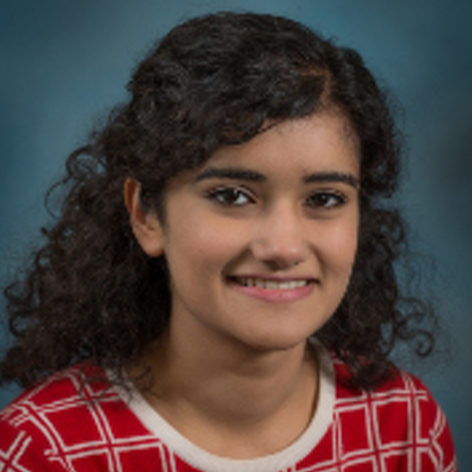
Labanya Mookerjee
As the Co-Chair of the Colored Conventions Project's Exhibits Committee and a PhD candidate in the Digital Humanities, I am deeply invested in exploring the dynamic connections between information technology and spatial humanities. Certified in XML, XSLT, XPath, XQuery, R, and Tesseract by Texas A&M University’s Initiative for Digital Humanities, I am responsible for co-curating exhibits by assessing the complicated politics of using digital spaces to visually represent African American history. My dissertation project will involve the expansion of EPA’s environmental justice mapping system, EJScreen, to explore the global impact of food deserts, and inefficient wastewater management by performing a case study surrounding the local environmental justice issues in Chester, PA.
-
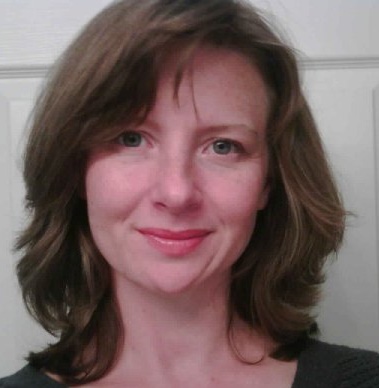
Dawn Nafus
Dawn Nafus is an anthropologist at Intel Labs, where she conducts research to inform new products and services. Her research focuses on self-tracking, data literacy and socio-technical formations that resist dominant modalities of biomedical and algorithmic control. She is the co-PI on the Data Sense project, a tool for self-trackers without data science expertise to visually explore and process data. She is the editor of Quantified: Biosensing Technologies in Everyday Life and coauthor of Self-Tracking (both MIT Press, 2016).
-
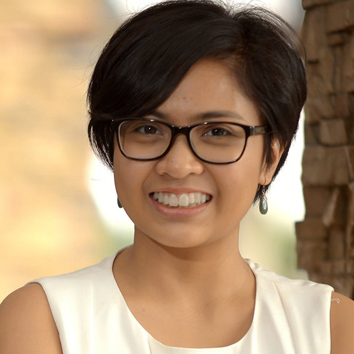
Lorina Navarro
Lorina is a designer and ethnographer. Previously, she studied Cultural Anthropology in the Philippines and worked as a Design Researcher in Motorola Singapore. Now a master's student in Human-Computer Interaction at Georgia Tech, she is interested in representing cross-cultural data to constitute greater narratives and insights about human conditions.
-

Sara Palmer
Sara Palmer received an MA in Film and Media Studies from Emory University in 2012. At the Emory Center for Digital Scholarship, she supports researchers in creating online exhibits, designing databases, generating network visualizations, and performing textual markup and analysis.
-

Marisa Parham
Marisa Parham is Professor of English at Amherst College, and also directs the Five College Digital Humanities Initiative, which is a Mellon-funded grant initiative serving Amherst, Hampshire, Mt. Holyoke, and Smith Colleges, and the University of Massachusetts-Amherst. Its purpose is to help artists and scholars to integrate technology into humanities scholarship and creative work, and also to bring those disciplines to influence technological growth and spread.
Her current teaching and research projects focus on texts that problematize assumptions about time, space, and bodily materiality, particularly as such terms share a history of increasing complexity in texts produced by African Americans and offer ways of thinking about intersectional approaches to technology studies. -

Peter Polack
Coming soon.
-

Anne Pollock
I am an Associate Professor of Science, Technology & Society in the School of Literature, Media, and Communication at Georgia Tech. I am also the coordinator of the Graduate Certificate in STS.
My research and teaching focus on biomedicine and culture, theories of race and gender, and how science and medicine are mobilized in social justice projects. I am particularly interested in how medical categories and technologies are enrolled in telling stories about identity and difference, especially with regard to race, gender, and citizenship.
My first book, Medicating Race: Heart Disease and Durable Preoccupations with Difference, tracks the intersecting discourses of race, pharmaceuticals, and cardiovascular disease in the United States from the founding of cardiology to the controversial approval of BiDil for heart failure in “self-identified black patients.” This informs my ongoing work with the Working Group on Race and Racism in Contemporary Biomedicine. I am also engaged in ongoing projects in three areas: feminist theory and the heart; American health disparities and citizenship claims; and drug discovery efforts by and for the Global South (specifically South Africa). An interactive site on this last project can be explored at mappingithemba.com. -
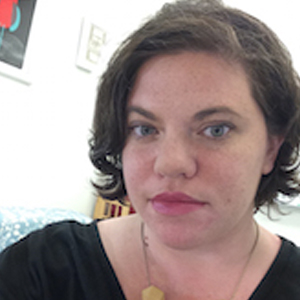
Miriam Posner
Miriam Posner is the Digital Humanities program coordinator and a member of the core DH faculty at the University of California, Los Angeles. A film, media, and visual culture scholar by training, she frequently writes on the history of science and technology. She is also a member of the executive council of the Association for Computers and the Humanities.
-

Erica Pramer
Coming soon.
-

Matt Ratto
Matt is an Associate Professor at the University of Toronto and director of the Semaphore Research Cluster on Mobile and Pervasive Computing, an interdisciplinary research group exploring and building capacity around new developments in tangible interfaces, smart objects and digital infrastructures. His current research focuses on how hands-on productive work can supplement and extend critical reflection on the relations between digital technologies and society.
-
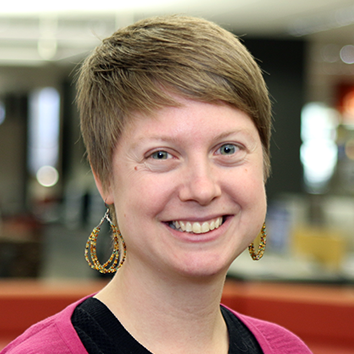
Katie Rawson
Katie Rawson is Humanities Librarian for English at Emory University. Previously, she was the the Coordinator for Digital Research at the University of Pennsylvania Libraries, a fellow at the Emory Center for Digital Scholarship, and the managing editor of the online, multimedia journal Southern Spaces. Katie has a PhD from Emory’s Institute for the Liberal Arts. With Molly Des Jardin, she founded Word Lab, and with Trevor Muñoz, she works on Curating Menus. She has published and presented on food in Faulkner, labor at Waffle House, open-access publishing in the academy, computational analysis in literature, and data in the humanities.
-
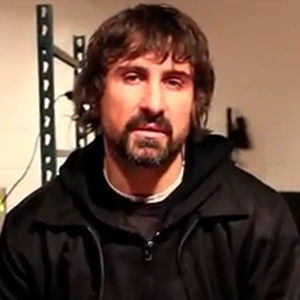
Gabby Resch
Gabby Resch is a doctoral researcher at the University of Toronto's Faculty of Information, where he works in the Critical Making Lab and the Semaphore Research Cluster on Inclusive Design in Mobile and Pervasive Computing. His research explores how interaction with a number of new media technologies that blur material and digital boundaries (e.g. 3D printing; augmented reality) is frequently positioned as separate and distinct from ocularcentric interaction, as if a clear and direct break between the ocular and post-ocular has now manifested in the deployment of new technologies. Some of his work is done in museum contexts, where he has experimented with novel methods for representing 2D artifacts as tactile 3D objects.
-
Lisa Marie Rhody
Lisa Rhody is Deputy Director of Digital Initiatives at the City University of New York’s Graduate Center, where she helps lead the Digital Initiatives team, which is working to integrate digital tools, skills, and methods into the university’s core teaching and research activities. Before joining the Graduate Center, Lisa was associate director of research and research assistant professor at the Roy Rosenzweig Center for History and New Media (RRCHNM) at George Mason University, where she oversaw technical development of PressForward and Zotero. She was also editor of the Journal of Digital Humanities and Digital Humanities Now. She earned her Ph.D. in English Language and Literature from the University of Maryland. Her research combines advanced computational methods such as topic modeling and social network analysis with more traditional literary analysis to study 20th and 21st-century American literature, particularly ekphrastic poetry (poems that take the visual arts as their subject) by contemporary women poets. More broadly, she is interested in the 20th and 21st century American literature, verbal-visual studies, scholarly communication, and digital humanities.
-

Juan Carlos Rodriguez
Juan Carlos Rodriguez received a Ph.D. in literature from Duke University. He has taught Spanish at the University of Puerto Rico in Rio Piedras and at Rice University, where he coordinated the Transnational Caribbean Cultures conference series.
His research and teaching areas are cinema, documentary, urban culture, and literature from Latin America and the Hispanic Caribbean. He is working on a book entitled De la calle a la pantalla: Ciudades e imaginarios urbanos de América Latina en el documental contemporáneo. Rodríguez co-edited a collection of essays on immanence and transcendence that appeared in Polygraph: an international journal of culture and politics.
His work has been published in various book collections and academic journals: La Habana Elegante (Cuba/USA), Revista Iberoamericana (USA), Debats (Spain), Travesía: The Journal of Latin American Studies (England). He is a member of the editorial board of La Habana Elegante and founder of the Puerto Rican literary magazine Hotel Abismo. -

Jacqueline Jones Royster
Royster is the dean of Georgia Tech's Ivan Allen College of Liberal Arts. She holds the Ivan Allen Jr. Dean’s Chair in Liberal Arts and Technology, and is professor of English in the School of Literature, Media, and Communication.
A graduate of Spelman College in Atlanta, Royster earned an M.A. and D.A. in English from the University of Michigan. Her research centers on rhetorical studies, literacy studies, and women’s studies, areas in which she has authored and co-authored numerous articles and book chapters.
She is the author of three books: Southern Horrors and Other Writings: The Anti-Lynching Campaign of Ida B. Wells-Barnett (1997), Traces of a Stream: Literacy and Social Change among African American Women (2000), and Profiles of Ohio Women, 1803-2003 (2003). She co-authored Feminist Rhetorical Studies: New Horizons in Rhetoric, Composition, and Literacy Studies (2012).
She co-edited Double-Stitch: Black Women Write about Mothers and Daughters (1991) and Calling Cards: Theory and Practice in the Study of Race, Gender, and Culture (2005) and edited a textbook for college writing courses, Critical Inquiries (2003).
She was consulting writer for Writer’s Choice, a textbook series for grades 6-8, and co-edited Reader’s Choice, a series for grades 9-12, both published by Glencoe/McGraw-Hill.
Prior to joining Georgia Tech in 2010, Royster served as Senior Vice Provost and Executive Dean of the Colleges of Arts and Sciences for The Ohio State University (OSU). -

Nicholas Shapiro
Nicholas Shapiro is a Matter, Materials and Culture Fellow at the Chemical Heritage Foundation and an Open Air Fellow at Public Lab. He is a critic and practitioner of environmental monitoring and mitigation, collaborating across the social sciences, the natural sciences and the arts. His fieldsites span American airspace from the industrialization of the rural atmosphere at sites of hydrocarbon extraction to chemically conditioned indoor air in manufactured housing to co-developing alternative means of solar balloon travel. He received his doctorate from Oxford in anthropology in 2014, followed by a post-doc at Goldsmiths, University of London. He is also a Visiting Research Professor at Drexel University.
-

Jennifer S. Singh
Jennifer Singh is assistant professor in the School of History and Sociology at Georgia Tech. She has a Ph.D. in sociology from the U.C. San Francisco and specializes in medical sociology and science and technology studies. Dr. Singh’s new book, Multiple Autisms: Spectrums of Advocacy and Genomic Science charts social, scientific, and political terrains of viewing and translating autism through a genomic lens. Based on over 70 interviews with scientists, parents, and people living with autism, the book investigates the ever-expanding meanings of autism to those who study the disorder and those who live with it. Her current research qualitatively investigates individual, institutional, and structural inequalities to autism diagnosis and services at the intersection of race/ethnicity, social class, and gender. This research is based on an ethnographic investigation to be conducted at the Hughes Spalding Autism Clinic in downtown Atlanta.
-

John Stasko
John Stasko is a Professor in the School of Interactive Computing at the Georgia Institute of Technology. He is a widely published and internationally recognized researcher in the areas of information visualization and visual analytics, approaching each from a human-computer interaction perspective. His Information Interfaces Research Group develops ways to help people and organizations explore, analyze, and make sense of data in order to solve problems. Stasko has been Papers/Program Co-Chair for the IEEE Information Visualization (InfoVis) and the IEEE Visual Analytics Science and Technology (VAST) Conferences, and has served on numerous journal editorial boards including ACM Transactions on Computer-Human Interaction, IEEE Transactions on Visualization and Computer Graphics, and Information Visualization. In Fall 2013 he was General Chair for the IEEE VIS conference in Atlanta, the primary research meeting for the field of data visualization. Stasko received the IEEE VGTC Visualization Technical Achievement Award in 2012 and was named an ACM Distinguished Scientist in 2011 and an IEEE Fellow in 2014. In 2013 he also became an Honorary Professor in the School of Computer Science at the Univ. of St. Andrews in Scotland.
-
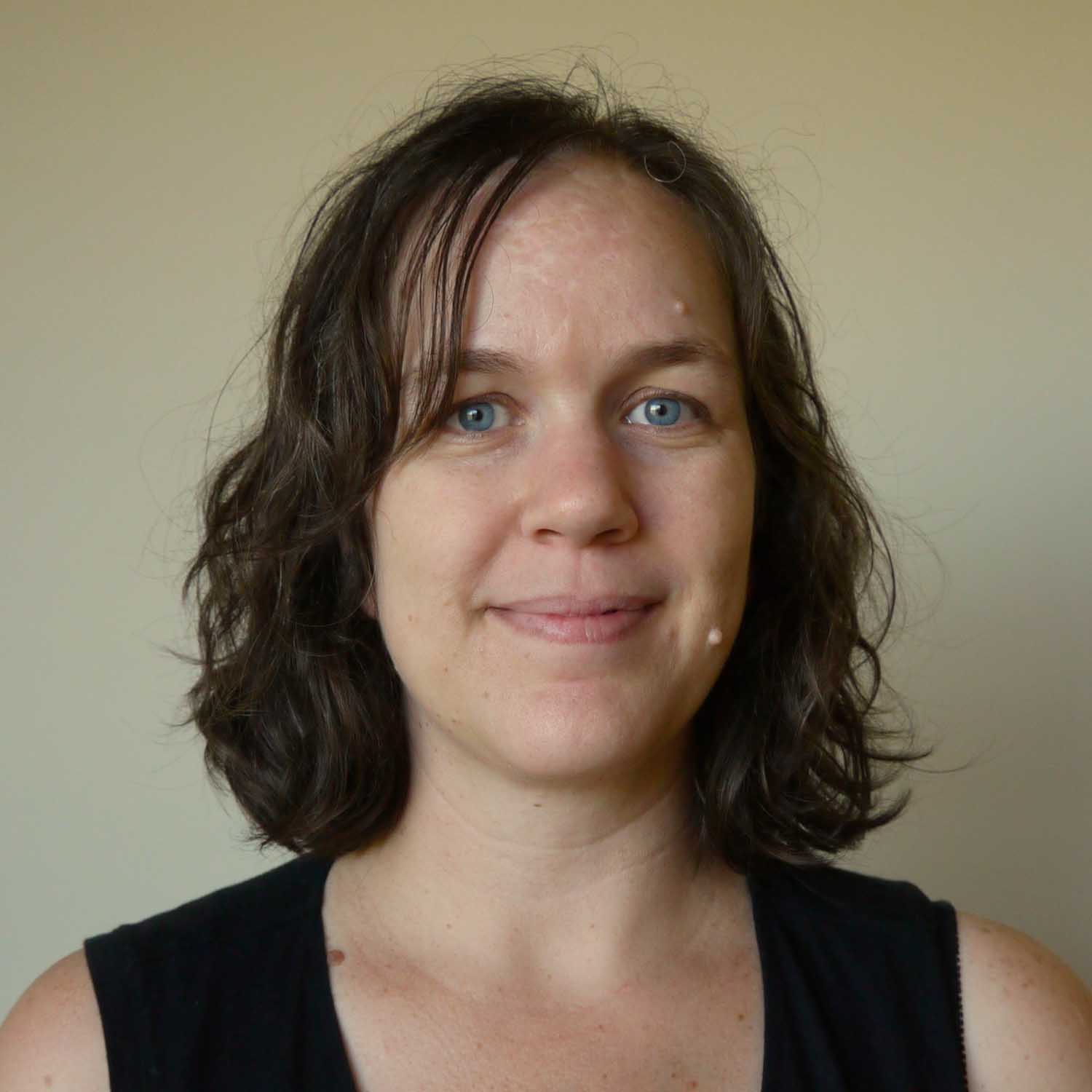
Jennifer Sterling
Jennifer Sterling is a postdoctoral fellow working with the Sports, Society & Technology (SST) program in the Georgia Institute of Technology's Ivan Allen College of Liberal Arts. She completed her Ph.D. in Kinesiology, Physical Cultural Studies at the University of Maryland, following research posts at Loughborough University (UK) and the Smithsonian National Museum of American History. Her research interests revolve around the disciplinary intersections of sports studies, science and technology studies, and visual culture. In particular, her research explores how visualizations of physically active bodies (e.g. medical imaging, data analysis, exhibition technologies) shape understandings of the body and affect inequalities.
-
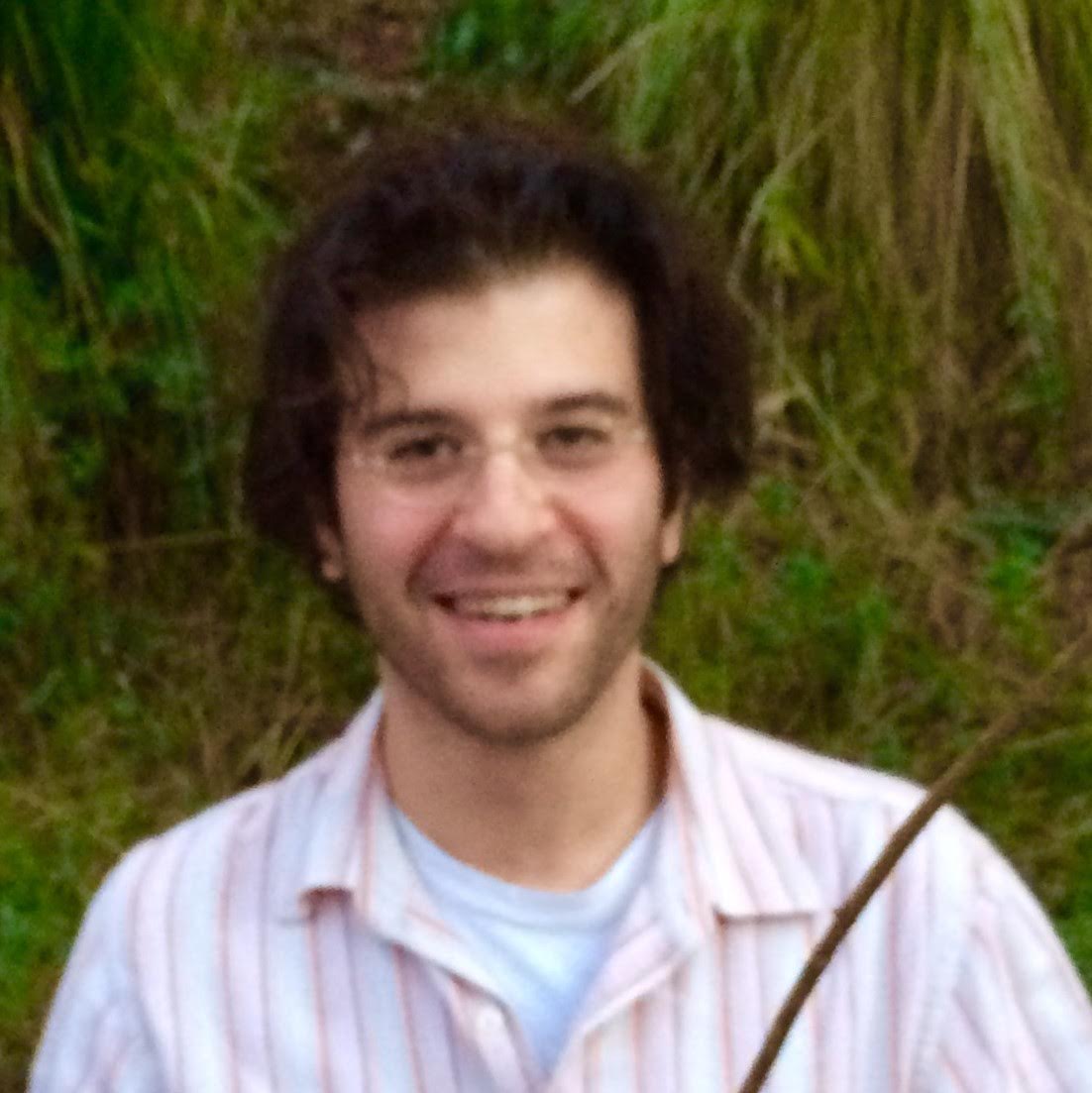
Benjamin Sugar
Benjamin is an MS candidate in Digital Media at The Georgia Institute of Technology where he is a member of the Local Data Design Lab and the Social Well-being Lab. His current research explores the network aspects of social movements using data from social media. Previous to entering the graduate program, he was the co-founder of CivicLab, a civic maker space in Chicago. During that time he was a researcher with the Media for Youth and Participatory Learning (MY PLACE) project which engaged youth in connecting to their community through geo-spatial tools and new media. Additionally, he is an organizer with Public Lab and a core team member at Between the Bars a paper based blogging program for people who are incarcerated.
-
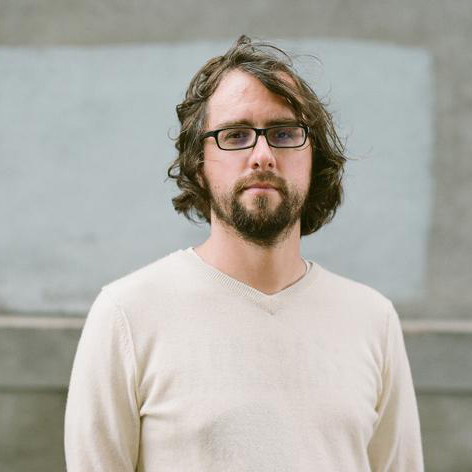
Jer Thorp
Jer Thorp is the co-founder of The Office for Creative Research, and an Adjunct Professor at New York University's ITP program. From 2010 to 2012, Jer Thorp was the Data Artist in Residence at the New York Times R&D Group. You can find a rambling selection of his software-based, data-focused artwork at blog.blprnt.com. Recently Jer Thorp has collaborated with NASA, visualized 138 years of Popular Science, and have had work exhibited at the Museum of Modern Art in Manhattan. You can watch his TED.com talk here. Recent talks that have also made their way onto the interwebs include this one from PopTech, and this one from Eyeo Festival in Minneapolis. He is a member of the World Economic Forum's Council on Design Innovation. For keynote speaking, Jer Thorp is exclusively represented by The Lavin Agency.
-

Richard Utz
Before joining GT, Richard Utz served as Chair and Professor in the English Department at Western Michigan University, and he also gathered experience as an educator at the Pädagogische Hochschule Dresden, the University of Northern Iowa, and the University of Tübingen. Utz received his doctorate from the University of Regensburg, Germany, in 1990.
Utz has been the recipient, at the University of Regensburg, of the Dr. Katharina Seiler Award for Outstanding Work in the Field of English Studies and, at the University of Northern Iowa, of Sigma Tau Delta’s English Professor of the Year Award; the College of Humanities and Fine Arts Teaching Award; the College of Humanities and Fine Arts Faculty Excellence Award; the Donald N. McKay Research Award; the Dr. Philip Hubbard Award for Outstanding Educator, the University Distinguished Scholar Award, and the Iowa State Board of Regents Award for Faculty Excellence. He currently serves as President of the International Society for the Study of Medievalism and editor of its review journal, Medievally Speaking, and its Proceedings, The Year's Work in Medievalism. -

Zixuan Wang
Zixuan Wang is a MS candidate in Digital Media at Georgia Tech where he focuses on user experience design and data visualization. His works involve filming, video editing, 3D modeling, UX design, as well as front-end development. His research explores possible interaction patterns in no-touch based situations (e.g. wearable devices, motion sensors, etc.) where people are physically unable to perform necessary interactions with computers.
-

Chris Weaver
Chris Weaver is an Associate Professor in the School of Computer Science at the University of Oklahoma. He holds a B.S. in Chemistry and Mathematics from Michigan State University and an M.S. and Ph.D. in Computer Science from the University of Wisconsin-Madison. He was a post-doctoral Research Associate with the GeoVISTA Center in the Department of Geography at Penn State, where he helped to found the North-East Visualization and Analytics Center. In 2013 he served as Conference Chair of the IEEE Conference on Information Visualization. His research in information visualization and visual analytics focuses on the development of techniques for highly interactive visual exploration and analysis of heterogeneous multidimensional data sets, with applications spanning the natural sciences, social sciences, and the humanities. In 2014 he received an NSF CAREER award to enhance visualization with gesture-based data editing for exploratory learning and research in the digital humanities and beyond.
-

Yanna Yannakakis
Yanna Yannakakis is Associate Professor and Director of Graduate Studies in the History Department at Emory University. She received her B.A. from Dartmouth College (1989) and her Ph.D. from University of Pennsylvania (2003). She is the author of numerous books and articles on colonial Mexico, the history of indigenous peoples in the Americas, and law and colonialism. Her first book, The Art of Being In-Between: Native Intermediaries, Indian Identity, and Local Rule in Colonial Oaxaca (Duke University Press, 2008) won the 2009 Howard Francis Cline Memorial Award given by the Conference on Latin American History for the best book on the history of Latin America’s indigenous peoples. Her new book project “Mexico’s Babel: Legal Culture and Popular Justice in Oaxaca from Colony to Republic” examines how translation in local courts and the circulation of legal knowledge in remote rural jurisdictions allowed Spain’s colonial legal system to take root in multilingual, overwhelmingly indigenous settings through the crucibles of colonialism, independence, and early nationhood (1650-1852). The project has won the support of the American Council of Learned Socities and the National Endowment for the Humanities. She is also working on a digital project “Power of Attorney: Law, Native People, and Social Networks in Mexico, 1700-1852,” which analyzes and expresses the history of native people’s engagement with Mexico’s colonial and post-independence legal systems by digitally mapping and visualizing social networks created by legal procedures and litigation. The project has won the support of a Mellon New Directions Fellowship.
-
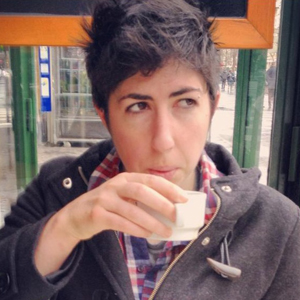
Jessica Yurkofsky
Jessica is a designer with roots in urban planning, ethnography, and coding. She was part of the teaching team behind Beautiful Data, a workshop for museum curators, scholars, and technologists to develop art-historical storytelling through design and making. She also co-taught Library Test Kitchen, a series of courses engaging students in designing for libraries, and LABRARY, an experimental library pop-up space. Her work with visualization strives to surface stories and activate collections in new ways. Current work with collections engages shifting academic curricula, networks of library meeting spaces, and social media responses to crisis.
Agenda
Humanities Data Visualization will be held between Wednesday, March 2nd, and Friday, March 4th, 2016.
We have envisioned a three-part format, consisting of an evening of informal presentations by workshop participants, a daylong visualization development session in interdisciplinary teams, followed by a morning spent critiquing and annotating the resultant prototype designs.
Unless otherwise indicated, all workshop events will be held at Georgia Tech’s Institute for People and Technology (IPaT), 75 5th St, 6th Floor, Suite 600.
MARCH 2: WEDNESDAY
| Time | Activity |
|---|---|
| 6:30-9:00pm |
Working Dinner at the Publik Draft HouseThe organizers will facilitate a working dinner, in which workshop participants will learn about the six humanities datasets, and meet the members of their visualization teams. |
MARCH 3: THURSDAY
| Time | Activity |
|---|---|
| 8:00-8:30am |
Breakfast provided at IPaT |
| 8:30-10am |
Problem Setting ExerciseThe workshop organizers, Lauren Klein, Yanni Loukissas, and Carl DiSalvo, will outline the goals of the workshop and lead the teams in a problem-setting exercise. |
| 10-11am |
Preliminary ReviewOn the basis of the problem-setting exercise, each group will draft a design brief to guide their work for the day. |
| 11-12:30pm |
Work SessionWorking in their teams, participants will begin to envision their visualization prototype. |
| 12:30-1:30pm |
Lunch provided at IPaT |
| 1:30-2:30pm |
Peer-to-Peer ReviewThe workshop organizers will facilitate a preliminary peer-to-peer review among visualization teams. |
| 2:30-4:30pm |
Work SessionParticipants will continue to work in their teams to develop their prototypes. |
| 4:30-5:30pm |
Optional Peer-to-Peer ReviewThe workshop organizers will facilitate a second peer-to-peer review among visualization teams, if requested. |
| 5:30-6:30pm |
Work SessionParticipants will work in their teams to finalize their prototypes, and to prepare their design briefs and presentations for the following day. |
| 7:00-9:00pm |
7:00-9:00pm Dinner at Escorpion |
MARCH 4: FRIDAY
| Time | Activity |
|---|---|
| 8:30-9:00am |
Breakfast provided at IPaT |
| 9:00-10:00pm |
Presentation PrepGroups will meet to finalize their presentations for the group review. |
| 10:00-12:30pm |
Final ReviewParticipants will meet as a group to present their prototypes and solicit feedback. (Session will be open to the public). |
| 12:30-1:30pm |
Lunch provided at IPaT |
| 1:30-3:00pm |
Follow-Up Group DiscussionParticipants will meet as a group to discuss lessons learned and next steps. |
Logistics
Humanities Data Visualization will run for two nights and two days, beginning with a working dinner at the Publik Draft House on Wednesday, March 2nd, at 6:30pm. Participants should arrive in Atlanta no later than 5pm that day. The sessions will conclude by 3pm on Friday, March 4th, allowing participants to make flights departing as early as 4:30pm.
Location & Directions
Georgia Tech is located ten miles north of Hartsfield Jackson International Airport (ATL) airport, and easily accessible by MARTA (Atlanta’s subway system). We recommend taking MARTA from the airport to the hotel. (Please save your receipts so that you can be reimbursed). More detailed instructions for how to do this can be found below.
The Institute for People and Technology is located on the 6th floor of the Centergy Building, located in Tech Square. Looking north from 5th Street, with The Spence (a restaurant) to your right, and the enticing cluster of Moe’s, Yogli Mogli, and Subway to your left, the Centergy Building will be straight ahead.
The Publik Draft House is located on the same block as the Hotel Indigo, just south of the Fox Theater. From the hotel, turn left and walk to the corner of Peachtree and Ponce de Leon; the Publik Draft House will be across the street.
Escorpion is located on the corner of 5th Street and Peachtree. We will walk to the restaurant as a group.
Lodging
All external workshop participants will be housed at Hotel Indigo Midtown, 683 Peachtree St NE, Atlanta GA, 30308. The hotel is a 5 minute (.2 mile) walk from MARTA, and a 5-10 minute (.5 mile) walk to the workshop.
How to take MARTA from the Airport
Once you land at Hartsfield Jackson International Airport (ATL) you will take the train to the main terminal and baggage claim (past the T Gate). If you have checked luggage it may be retrieved here; flight numbers and originating cities will be listed on the electronic reader boards over each baggage carousel. Once you are ready to leave the airport make your way to ground transportation and take the MARTA (Metropolitan Atlanta Rapid Transit Authority). MARTA departs from inside Hartsfield Jackson International Airport.
You will need to purchase a Breeze Card from a vending machine in the North terminal. There is a one-time charge of $1.00 to purchase the card. A one-way trip is $2.50; you have the option of buying a return fare at this point or you may add value to your Breeze Card for your return trip at a later time. Please note the system will NOT allow you to share a Breeze Card (You cannot buy 2 fares on one card, use one fare, and then pass the card to your travel companion). The $6.00 charge can be paid by cash or by credit card. There will be MARTA representatives nearby if you have questions navigating the vending machines. (Please also save your receipt, as we can reimburse you for this).
While in Hartsfield Jackson you will be at the southern terminus of the MARTA) line so it makes no difference which train you board. (One is marked North Springs and the other train is marked Doraville, but that split is past where you will disembark so it makes no difference.) Take the train north 9 stops to N3, the North Avenue Station.
When you get off the train there will be two sets of stairs/elevators on the platform level. If you use the one toward the front of the train you will emerge in the right place (actually you will be in the AT&T building).
If you go to the widest (i.e. handicap) gate, it will open automatically for you. The rest will require you to ‘tap out’ with your Breeze Card to open the gates. Again there will be MARTA employees on the upper platform to assist if necessary.
Once through the MARTA gates proceed through the glass doors (to your right will be a food court). Continue to the exterior doors and exit the building. You will be on Ponce de Leon Avenue, NE. Turn right and proceed to the first intersection, Peachtree Street, NE. Cross Peachtree Street at that point and turn left. Across the street is Atlanta’s Fabulous Fox Theater. On your right will be the Georgian Terrace; just past the Georgian Terrace is the Hotel Indigo, where you will be staying.
[For the return trip to the airport, make sure your Breeze card has a fare on it (or purchase one from the vending machine in the North Avenue Station) and be sure to take a southbound train, which will terminate in Hartsfield Jackson International Airport. Allow no less than 45 minutes to an hour for the MARTA ride to the airport, especially during non-peak times.]
How to get from Hotel Indigo to the Centergy Building
It is about a 5 block (.5 mile) walk to the Centergy Building. Exit the Hotel Indigo and turn right on Peachtree Street. Walk 3 blocks to 5th Street. There is a large Methodist church on the right (St. Mark UMC) and a Mexican restaurant (Escorpion) diagonally across the intersection with a large steel scorpion sculpture on the corner of the building. Turn left on 5th Street and continue to the dead end (about 2 short blocks). In front of you will be Georgia Tech’s Scheller College of Business (a four story atrium with 2 Chihuly glass sculptures hanging from the ceiling). Turn right at that intersection and proceed about 100 feet to the next intersection, which will be a continuation of 5th Street. Turn left there and continue through the next intersection, Spring Street.
In the next block on your right is a courtyard. The Centergy Building is at the rear of that courtyard; look for the revolving door.
Take the elevator to the 6th floor and look for the Institute for People and Technology (IPaT) door.
Contact
For questions about the content of the workshop, or about travel logistics, please contact Lauren Klein: lauren.klein@lmc.gatech.edu.
For questions about activities taking place within IPaT, please contact Don Schoner, dschoner3@gatech.edu, 404-894-IPAT (4728).
Click here to download the ground transportation reimbursement form.
Datasets
Archive of Future Air
This dataset comes to us from weather balloons launched each day across the United States. Measuring air patterns, temperature and more at up to 30 kilometers above sea level, these scientific data must be re-tethered to the human context of our every breath.
Team members: Bill McKenna and Nicholas Shapiro (data), Jessica Anderson, Matthew Battles, Polo Chau, Song Hia, and Blacki Migliozzi.
Project website: http://www.aerocene.com/
Atlas of Caregiving
This dataset traces the physical and affective labor of family caregivers, by bringing together aggregate data from 14 different personal and environmental sensors along with self-reports and follow-up interviews. The project challenges us to reconsider the ethical and representational boundaries of health data.
Team members: Dawn Nafus (data), Caroline Foster, Matt Ratto, Anne Pollock, Jen Singh, John Stasko, and Jer Thorp.
Project website: http://atlasofcaregiving.com
The Baltimore Afro-American
This dataset contains millions of pages of digitized text from the Baltimore Afro-American, the longest-running African American family-owned newspaper in the United States. Considered as big data, the "Afro,” as the paper is colloquially known, offers insight into the role of the Black press in constructing and shaping African American identity, particularly as it relates to gender and sexuality.
Team members: Kim Gallon (data), Catherine D'Ignazio, Niklas Elmqvist, Nihad Farooq, Russell Huffman, and Benjamin Sugar.
Project website: http://blackpressresearchcollective.org
Colored Conventions
This dataset documents sixty years of “Colored Conventions,” collective organizing meetings that engaged thousands of Black participants in debates and calls for racial justice over the course of the nineteenth century. While the dataset records the words and actions of the convention delegates, it must more fully account for the crucial work performed by women, and others in the broader community that made these conventions possible.
Team members: Jim Casey, David Kim, and Labanya Mookerjee (data), Ridhima Gupta, Nassim JafiriNaimi, Katie Rawson, Jacqueline Jones Royster, and Chris Weaver.
Project website: http://coloredconventions.org
Ngā Upoko Tukutuku / Māori Subject Headings
Comprehensive subject headings, like those of the Library of Congress, provide frameworks for organizing knowledge. The subject headings devised by Te Whakakaokao, the Ngā Upoko Tukutuku Reo Māori Working Group, organize information according to the Māori worldview, in which body, mind, and spirit— categories we would otherwise easily distinguish— are inextricably intertwined.
Team members: Miriam Posner (data), Rahul Basole, Jim Foley, Marisa Parham, Peter Polack, and Jessica Yurkofsky.
Project website: http://natlib.govt.nz/nga-upoko-tukutuku
Power of Attorney / Poder Legal
This dataset is culled from notarial records in archives in Oaxaca, Mexico, dating from the colonial period through the first decades after independence. Consisting of people (grantors and grantees), places (including villages of origin and courts), and events (the production of notarial records), this dataset allows us to better understand the relationships that native people built with legal agents and legal institutions across the divides of language, culture, and geography.
Team members: Sara Palmer and Yanna Yannakakis (data), Roderic Crooks, Jenna Fizel, Chris LeDantec, Erica Pramer, and Juan Carlos Rodriguez.
Project website: https://scholarblogs.emory.edu/powerofattorney/
Revising Ekphrasis
Ekphrastic poetry, or poetry that describes visual art, present multiple layers of meaning within (and beyond) the bounds of the poem. This dataset contains the text of 4,500 poems filtered through a topic model (a technique derived from the field of machine learning). While the metaphorical language of poetry resists the thematic analysis that would usually follow, the model’s underlying statistics open up new opportunities for the analysis of ekphrasis in a wider range of poems.
Team members: Lisa Rhody (data), Paolo Ciuccarelli, Alex Endert, Gabby Resch, Jen Sterling, Richard Utz, and Zixuan Wang.
Project website: http://www.lisarhody.com/revising-ekphrasis/
